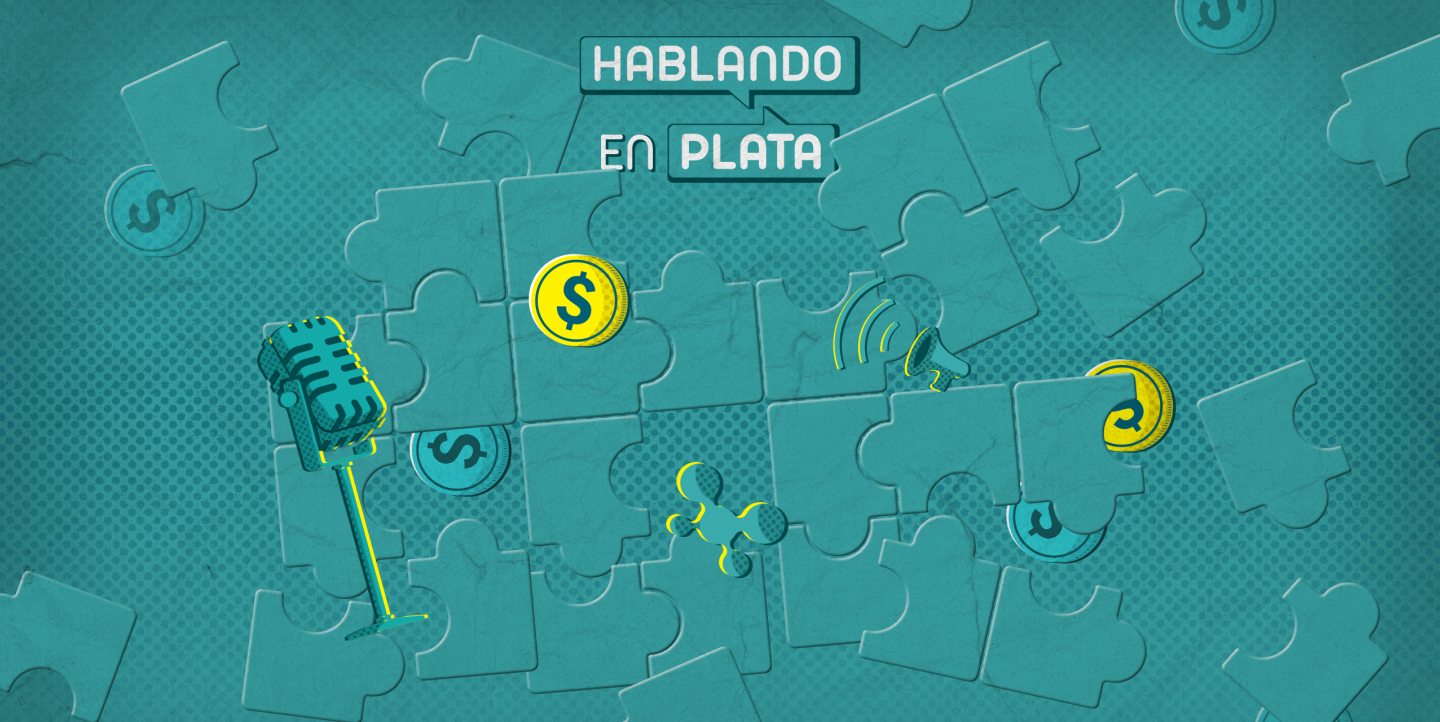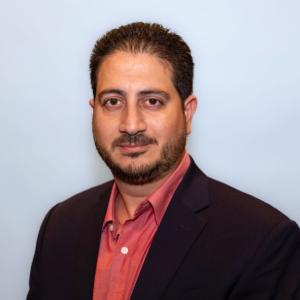The Spanish expression “hablar en plata” translates literally in English to “speaking in dollars.” Idiomatically, it translates to “realistically speaking.”
How to generate money – “plata” in Spanish, the slang used in many Latin American countries – is one of the most pressing concerns among journalists and media outlets today.
“Hablando en Plata” is a Spanish-language video podcast in which I hold conversations with fellow independent media executives from Latin America who today live in exile. In each episode, we discuss the different business models with which we are experimenting for our media organizations. So far in the first season of the podcast I have featured media leaders from Venezuela, Cuba, El Salvador and Nicaragua.
Available on YouTube, Spotify, Amazon Music and Audible, in the five initial episodes my guests and I discuss membership programs, content agencies, political risk reports and online stores as sources of income for our media outlets. We also speak about challenges faced by media leaders, such as transition plans for leadership and staff, difficulties attracting advertising, and barriers to news posed by social media platforms, among other topics.
From these conversations with colleagues, as well as the research I’ve carried out for the podcast, I have identified a dozen business models that, in one way or another, are being used by exiled media from Latin America.
When I use the term “exiled media,” I’m referring to news organizations that have had to establish themselves abroad due to the risk of persecution. From their new locations, these outlets continue to serve their fellow nationals, sometimes with members of their teams still residing in their countries of origin.
The newsrooms rely primarily on grants to survive. They also offer training programs and subscriptions, organize events, operate publishing companies, sell sponsorships, develop technology and communications campaigns for third parties, and fundraise donations.
The first season of Hablando en Plata
This podcast is part of my 2024 ICFJ Knight Fellowship. The first five episodes address the following topics:
Episode 1: El Toque's business model
The podcast’s first episode provides an overview of the business model employed by El Toque, where I work as editor-in-chief. To begin an open discussion about the sustainability of media in exile, my team and I felt it was important to start by sharing our own experiences, making our business model transparent.
My colleague Beatriz Valdés, El Toque’s business director, and I share our experience building a revenue model that includes grants as a main source – but diversified and not dependent on a single grant or donor. This revenue stream is complemented by income we generate from the commercial activities and support services we offer the media industry and content creators in Cuba.
Our recipe, which is neither ours nor new, is to diversify, diversify and diversify.
Episode 2: Membership programs aren’t for everyone
César Bátiz, the director of Venezuela’s El Pitazo is my guest in this episode. Together we analyze the challenges that come with establishing a membership program at a media organization.
Spoiler alert: although it may seem relatively easy to mobilize audience members who are deeply engaged with our content, converting them from news consumers to donors is more complex than it seems.
Bátiz also shares his experiences developing and promoting a training program for citizen reporters. He stresses, too, how critical it is to start conversations with the big social media companies, to help ensure that they don’t harm independent digital media.
Episode 3: When consulting agencies work (or don’t)
Laura Aguirre is development director for Alharaca in El Salvador (as well as for SembraMedia, an international support organization for independent media). Although the three founders of Alharaca now live outside of El Salvador, they do not consider themselves a media organization in exile – not yet anyway.
In light of the increasing authoritarianism in El Salvador, the Alharaca team has already taken measures for when it is time for the organization to leave the country completely.
Aguirre brings generosity and transparency to a discussion about why she decided to close Alharaca’s consulting agency. Spoiler alert: you can’t clone a newsroom when developing an agency like the one we had, offering other services.
In the episode, Aguirre also shares how to create an effective plan of succession that will ensure the survival of a media outlet as the organization transitions from its founders to new leadership.
Episode 4: Political risk reports as a source of income
In this episode, Raúl Stolk, the director of Caracas Chronicles, shares how the ups and downs of politics in Venezuela over the last decade have directly impacted the country’s media. The situation is such that media outlets have to cut staff and scale back their reach, he explains.
Caracas Chronicles started as a space for bloggers. Over time, it developed into a digital, bilingual Spanish-English media outlet that publishes about the realities of Venezuela.
What distinguishes Caracas Chronicles from other media is that its team decided not to rely on grants. The outlet is primarily supported by selling subscriptions to its political risk reports and other types of consulting services.
In this conversation, Stolk also highlights the challenges that come with managing online stores selling merchandise for a media outlet.
Episode 5: A network of media organizations in exile
In episode five, I speak with Cinthia Membreño, a Nicaraguan journalist and a former staff member of the Nicaraguan newspaper, Confidencial. We discuss the work being done by the Network of Exiled Media Outlets (NEMO), where Membreño works as a coordinator.
She shares day-to-day experiences and lessons learned about sustainability strategies that transcend country borders in Latin America and are practiced in the Middle East, Europe and Asia.
Sustainability is about more than money
Often, sources of revenue are the focus when talking about newsroom sustainability. The reality, however, is that this desirable state called “sustainability” is only achieved when financial balance is attained alongside other aspects of an organization.
According to industry colleagues at LION Publishers in the U.S, sustainability is the intersection between financial health, operational resilience (having an organized, solid work culture complete with processes, and policies) and journalistic impact.
This is why in my research, for which the Hablando en Plata video podcast is currently the most public-facing aspect, I look into a wide variety of aspects related to how media in exile function. This analysis can provide us with examples and recommendations on how to make our journalism sustainable.
From the conversations I’ve had so far with my Nicaraguan, Venezuelan, Salvadoran and Cuban colleagues, it’s clear to me that we need to talk about employee benefits policies, human resource management and other aspects of care for the journalists sustaining exiled media. For instance, there are diverse approaches to vacation time, caregiving leave, holidays, psychological well-being and performance evaluations, and there is no one right answer.
(Note: The interviews for this podcast are conducted in Spanish. To listen/watch in English, we recommend using the English subtitle function on YouTube.)
Main image courtesy of Hablando en Plata.
This article was originally published by IJNet in Spanish. It was translated to English by journalist Natalie Van Hoozer.


